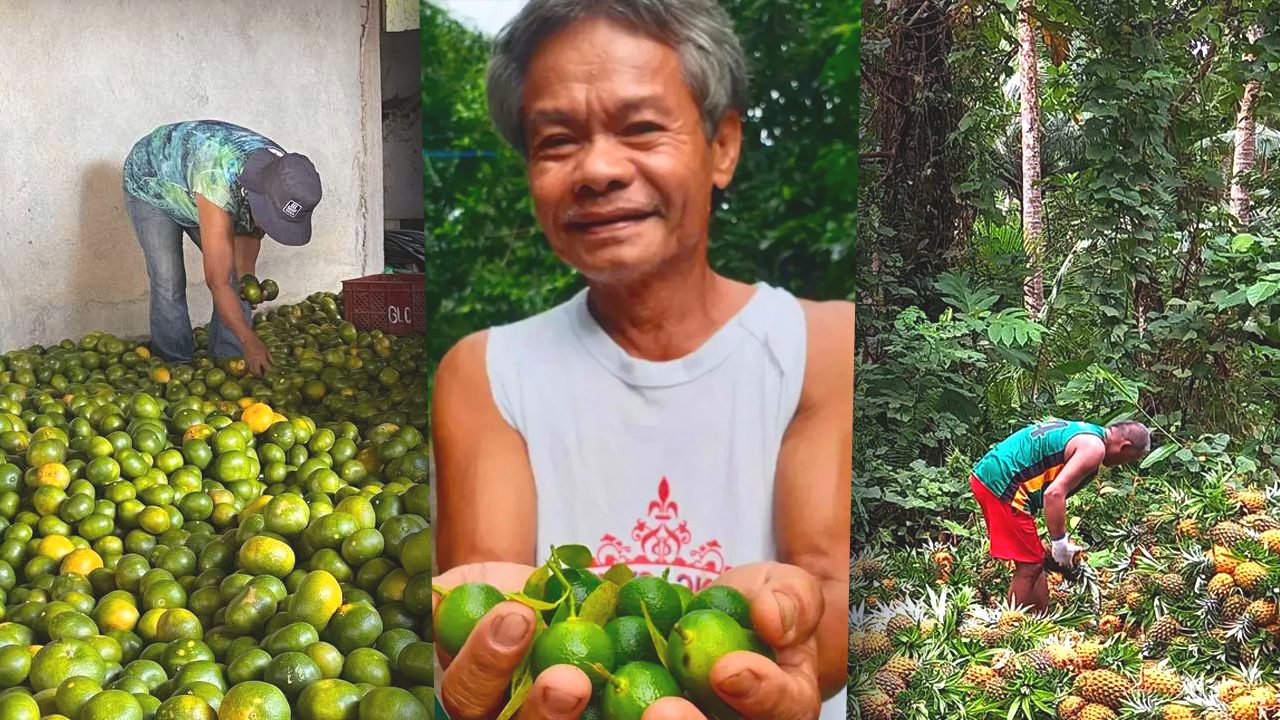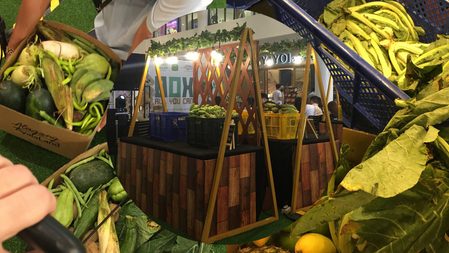SUMMARY
This is AI generated summarization, which may have errors. For context, always refer to the full article.

MANILA, Philippines – Grocery shopping has been extra painful for most Filipinos as prices of rising food commodities have continued to rise since the past year.
According to Rappler’s analysis of consumer price index data, the prices of rice, meat, seafood, vegetables, and sugar either increased or remained largely the same from February 2022 to June 2023. Just in August, vegetable inflation rose to 31.9% from 21.8% due to production losses from enhanced monsoon rains and Super Typhoon Egay.
The Department of Agriculture’s price monitoring showed an increase from June 2022 to July 2023 for local red onions (from P90 per kilo to P140 per kilo), cabbage (from P65 per kilo to P110 per kilo), and carrots (from P80 per kilo to P140 per kilo). Remember when prices of Filipino kitchen staples drastically shot up during Marcos’ first year as president? Onion prices soared to 500%, selling for as high as P600 per kilo.
Since August, at the Balintawak Market, garlic prices are at P110 to P130 per kilo, onions at P140 to P160 per kilo, and white sugar at P95 per kilo. According to the vendors, higher agricultural production costs caused the spikes in prices.
Farmers are among the poorest sectors in the country, riddled with issues out of their control like insufficient income, inclement weather, land conflicts, land productivity, limited access to resources, volatile markets, outdated technology, oversupply, and middlemen.
Thankfully, nonprofit enterprises – such as Session Groceries, Good Food Community, The Murang Gulay Shop, and more – utilize their agri-entrepreneurship advocacies to help alleviate the struggles of Philippine farmers. By bridging the gap between consumer and farmer and holding rescue buys at farm-gate prices, these organizations are able to provide fairer income to farmers, support farming communities, and help ease the budget burdens of Filipinos living in the metro.
Rural Rising
Social nonprofit enterprise Rural Rising’s advocacy is to “spur the rural economy” by bridging the gap between urban customers and farmers around the country through bulk rescue buys of locally-grown vegetables and fruits, delivering them from various provinces to customers in Metro Manila.
Rural Rising founders Ace and Andie Estrada are committed to fostering “rural prosperity” by bringing fresh produce from the countryside straight to the city through agri-entrepreneurship. They’re in direct contact with different farmers from the farthest-flung areas who regularly appeal for help when there is not enough demand for an oversupply of their produce. In the end, the fruits of their labor spoil and they end up taking home nothing for their hard work.
“The farmers win and so do the consumers,” Rural Rising said of its effort. All fruits and vegetables that are not claimed within 48 hours are automatically donated to hungry communities in Metro Manila and to various community pantries. No produce goes to waste.
Every week, Rural Rising posts an updated list of rescue buys on Facebook, with each produce sale carrying a backstory about the farmers in need and the challenges they are facing.
The assortment of produce Rural Rising sells by the kilo are endless – aside from duck eggs and honey, they’ve also sold sweet corn from Pangasinan, basil from Pampanga, sweet potatoes from Guimaras, squash from Nueva Ecija, dragon fruit from Aurora, pineapples from Isabela, strawberries from Benguet, and many more.
You can support Rural Rising and its grassroots advocacy of “harnessing the full potential of agriculture to support the country’s food security” on Facebook.
KITA
KITA says its mission is “to ensure Filipino farmers earn a fair income for their hard work,” believing that they can “collectively empower farming communities, enhance produce quality, and build a more sustainable future for all.”
As a “fresh, affordable, and reliable supply chain partner,” KITA believes in elevating Filipino farmers by directly connecting local farms to top restaurants and businesses for their high-quality produce needs. KITA harnesses the power of agritech by adopting AI technology to enhance system processes, like helping farmers by predicting future prices and market demand. This way, farmers can receive better profit for their hard work, achieving financial stability and empowerment through sustainable income.
“Through direct-to-farm financing, we are enabling farmers to invest in their operations and improve crop quality,” KITA said. KITA’s main hub is based in Balintawak, Quezon City, but customers can place produce orders online via Facebook (a different price list is sent every day), or through the Metromart app.
Sierezza
Sierezza brings naturally-grown farm produce to customers’ doorsteps, “empowering marginalized communities by helping establish a sustainable livelihood and fair market.”
“By sourcing from Sierreza, you help us provide livelihood assistance to our partner farmers AND extend much-needed services to our underserved communities. This is the very essence of a social enterprise – doing business for the good of our communities,” Sierreza said.
Sierezza’s most recent Facebook sale is organic calamansi from Sierra Madre, selling it for P60 to P70 per kilog. “The farmers asked us if we can increase our orders to absorb up to 400 kilos of their potential harvest next week because other buyers will only buy it for P15 to P20 per kilo from them. Sobrang lugi. Buti pa daw sa atin, fair pricing (It’s too much of a loss. They said it’s better in our case, fair pricing),” Sierezza shared.
You can request Sierezza’s weekly harvest forecast from their partner farmers on Facebook, and make your delivery orders there as well. They deliver to Metro Manila and select areas in Laguna.
Mayani
Mayani delivers farm-fresh vegetables and fruits, as well as frozen meats and imperfect crops at lower prices via its online farm-to-table platform with over 72,000 partner farmers.
Mayani’s agri-vision is where “smallholder farmers and fisherfolk lead better lives because of technology and community” by building a sustainable pathway to market. This way, Mayani is able to boost rural incomes while strengthening access to affordable fresh produce for both households and commercial buyers.
“We now collaborate with the country’s largest supermarket chains, food brands, international hotels, food processors, and other institutional players in moving the Philippine agri-fisheries sector forward,” Mayani said in its website. Customers can add to cart anytime on website or inquire on Facebook.
Veggies For Good
Social enterprise Veggies For Good said it “believes in fair prices for farmers, sustainable work for nanays and tatays, decent pay for riders, and fresh fruits and veggies delivered at affordable prices.”
The Marikina-based agri-organization was birthed from a “lockdown accident” – the online shop first helped struggling Dumagat farmers sell produce in Metro Manila. One man’s impulsive decision was to buy five jeeploads of local produce on a whim even as Luzon was weeks into a coronavirus lockdown. After a visit to Daraitan in Rizal to hand out relief goods, Aison Garcia came back home to Manila with five jeeps full of Dumagat farmers’ harvest – 528 kilos of taro, 232 kilos of cassava, 423 kilos of ginger, 293 kilos of sweet potato, 253 kilos of coconut, and 96 kilos of guyabano (soursop). He had to find a way to sell the produce, and fast.
Veggies for Good has since sprouted into a full-blown agri-business, now available for delivery orders of locally-grown fruits, vegetables, rice, eggs, seafood, meat, dried seafood, sardines, and more via its website or Facebook.
Kammantha Vegan
Online health and vegan shop Kammantha Vegan is named after “an old word that translates to action for health and compassion.” Aside from offering frozen and fresh vegan food staples, Kammantha Vegan has a farm-to-table system on a pre-order basis.
“Every Friday, I give the list to our farmer friends and they harvest reserves for us. Anything in excess they will send over to the trading posts. We do not stock up here in Manila to keep costs at minimum and to prevent wastage din,” the shop said.
Kammantha Vegan works with over 30 farmers from Benguet. For other produce, they refer to farmers’ cooperatives to bring the produce down to Manila.
Customers can request their produce orders via Facebook.
Gifts of Harvest
Fresh produce and natural products from Benguet are what Gifts of Harvest PH offers, including healthy beverages like kombucha and salabat (ginger tea), as well as fresh fruit and veggie juices.
Benguet fruits are in abundance here, as well as leafy greens, vegetables, Cordillera rice, highland coffee, and even famous Baguio goods from Good Shepherd! Customers can order via Facebook. – Rappler.com
Add a comment
How does this make you feel?











There are no comments yet. Add your comment to start the conversation.